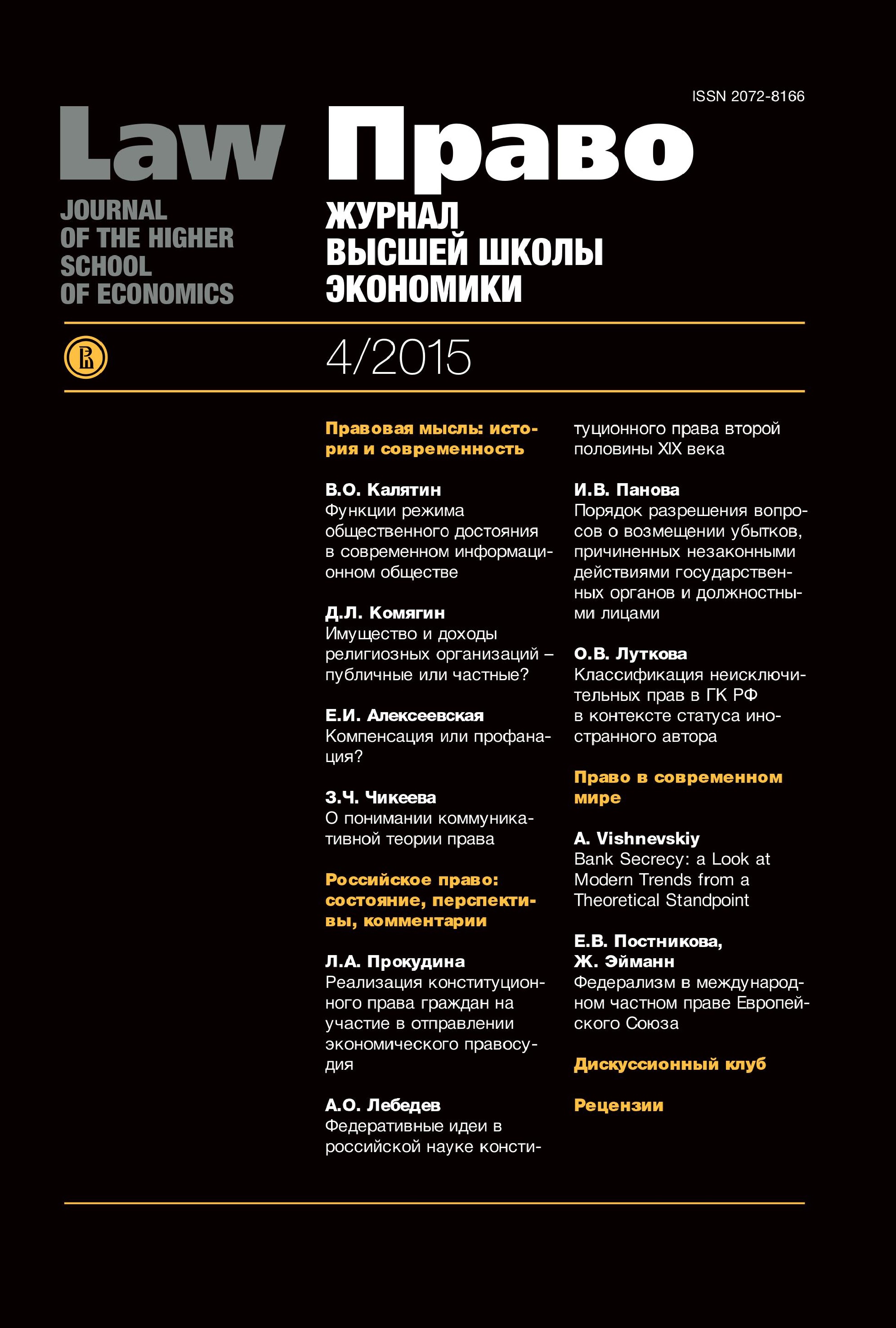The Historical Analysis of Anti-Criminal Policies in Germany (1871–1945)
Abstract
The historical analysis of the German criminal policy from the end of the 19th century to the middle of the 20th century presents a significant interest. This is the period when criminal policy was being formed, with clear-cut identification of its content, aims and objectives. The development of the concept and functions of criminal politics got acute with the attempts of establishing a democratic constitutional state in period of the Weimar Republic. The necessity was expressed in reforming criminal legislation to alter paradigms, rejecting excessive repression, harmonizing and softening the legislation and cutting costs of the criminal justice. Criminal law experiences alterations due to the ideas and principles established by the then criminal law science which relied on criminological and social research of crime and punishment. With the establishment of national socialistic regime in 1930s the role of prevention as a function of criminal law starts to decrease significantly, and law and order is ensuring by threatening citizens. The retrospective analysis of criminal politics in the German Empire, Weimar Republic and national socialistic regime (Third Empire) shows the transmission from liberal frame of mind to repressive regulation of all spheres of human life. The paper features the alterations in the German criminal law related to the proprieties of criminal politics. The research of the changes aims to find the correlation of the dependence of criminal law from internal and foreign policy of ruling strata and the imposed in society ideology.


















